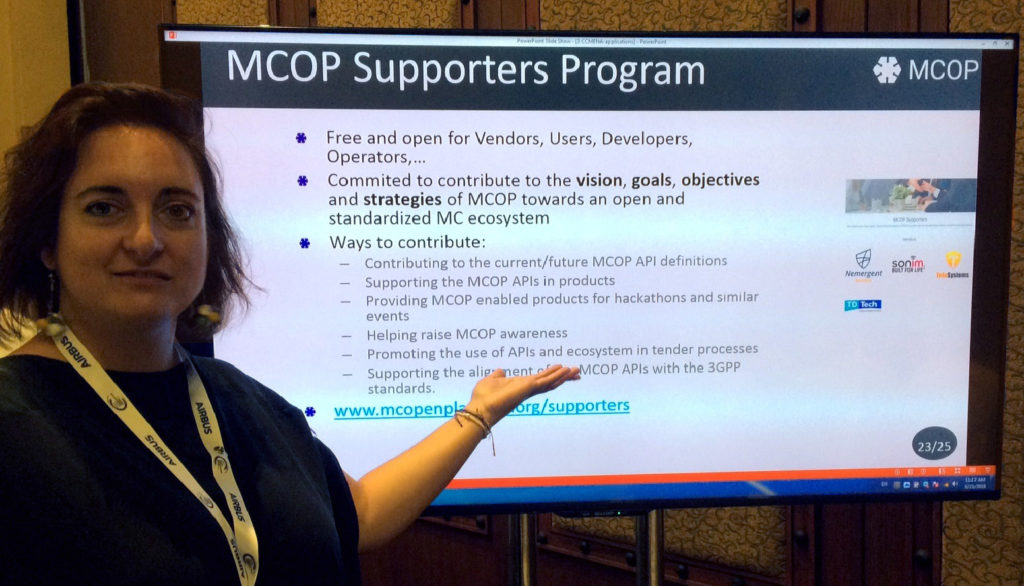As part of our focus of maintaining and upgrading the MCOP open APIs, we are proud to announce the latest refactoring and upgrade of the MCOP Unified Open Application API, the so called MUOAPI.
The main feature comes with the update of the existing version to now support MCPTT, MCVideo and MCData services.
Full feature list of the upgrade includes:
- Expansion to enable deploying the three mission critical services -MCS- (MCPTT, MCVideo and MCData). (e.g. different service affiliation support)
- MCData Short Distribution Service (SDS) support.
- Functional Alias support.
- Emergency Alert support.
- Group management operation support (e.g. group formation, temporary group management).
- User and group permission management expansion.
- Remote group selection support.
The complete updated MUOAPI documentation can already be found in our website.
As part of the update, our existing Demo SDK and Demo MCPTT Client have also been refactored to deal with the updated MUOAPI, while keeping the same features as before (MCPTT Rel14 support, no MCData/MCVideo).
Also, upon feedback and request from the MCOP community, our demo apps are now compatible with the latest Android versions, including Android 11 version.
Happy MCS app coding!



